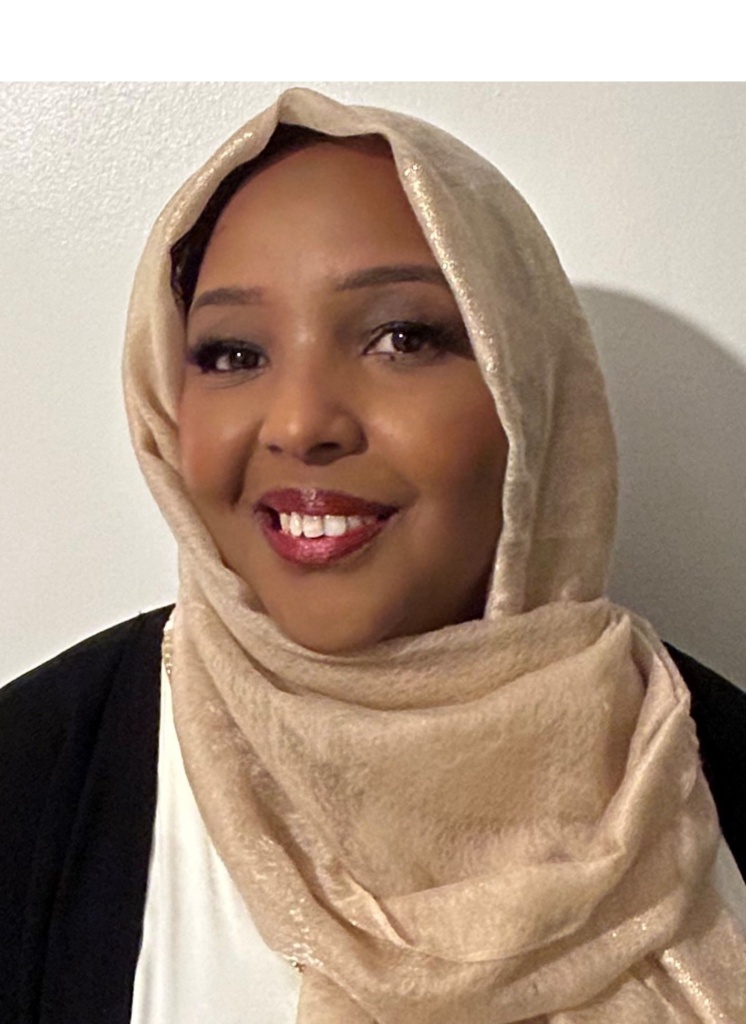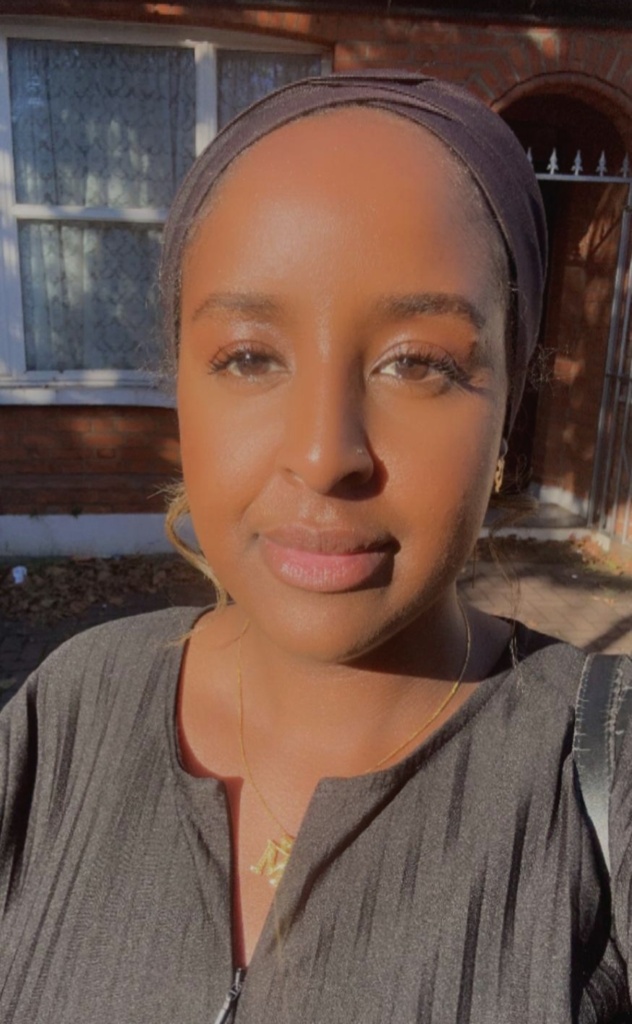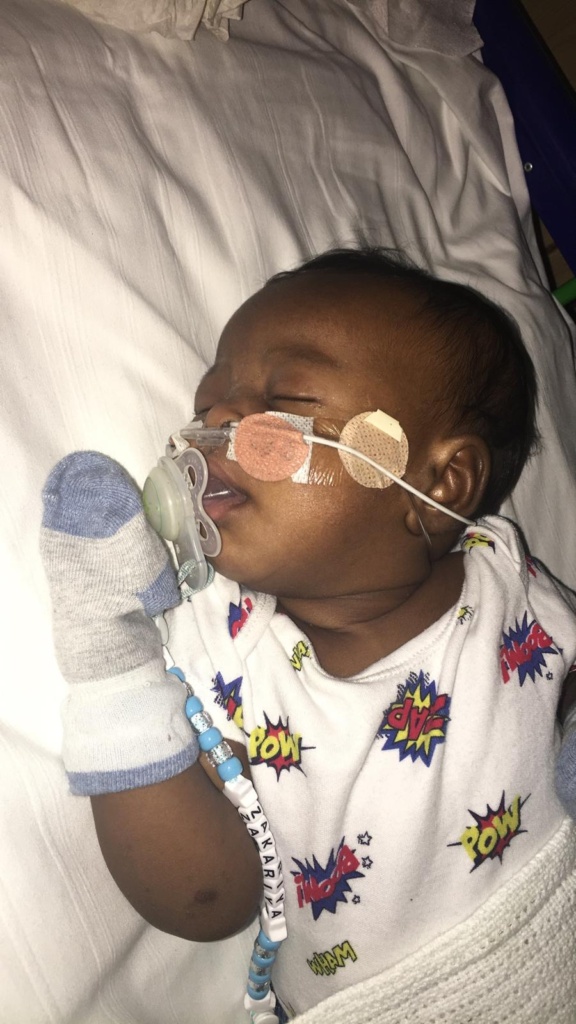
If you’re feeling a little anxious about starting a family, you’re not alone. You might worry about keeping your baby safe, or how you’ll manage when your baby comes.
“I can reassure you that what you’re feeling is normal but it helps to talk about it,” says Wendy, a midwife and NHS England’s National Maternity Lead for Equality.
During pregnancy, it’s normal to have questions or concerns about your health and your baby’s development. Speaking openly with healthcare professionals about any issue, even ones that might feel embarrassing or difficult to discuss, helps ensure you both get the best possible care, say Midwives Wendy Olayiwola and Huda Mohamed.

Your mental health matters too
“Mental health is especially important during the perinatal period – before, during and after pregnancy. Peer support is good for our wellbeing, and it starts with talking about how we’re feeling.
“If you can’t speak to friends or family, there may be a local antenatal group you can join. These are a good way to find out about local services too.
“Many women benefit from online services and pregnancy and mental health apps to cope with unhelpful thoughts and feelings. Some help dads and partners too.”
Apps and resources can be found on the NHS website, from the Maternal Mental Health Alliance (MMHA), mental health charities like Mind, and maternal health charities like Tommy’s or Pandas.
Free NHS Talking Therapies offer counselling and therapy for problems such as low mood, obsessive thoughts, or anxiety. You can read more about it and find a local service at www.nhs.uk/talk.
The NHS runs specialist perinatal mental health services for women with complex or severe mental health problems. These include community services, and mother and baby units where women having treatment in hospital can stay with their babies.
“Mental health is something we shouldn’t avoid talking about,” adds Wendy. “The NHS is here for your mental and physical health, and both are important for you and for your family.
“If you need help before pregnancy, during your pregnancy or afterwards, please tell your midwife, GP or health visitor, or, if you’re already receiving care for a mental health condition, let your mental health team know.
“If you feel there’s a risk you might hurt yourself or your baby, please call 999. A mental health emergency is as important as a physical one.”

No reason to be ashamed
Taboo topics also includefemale genital mutilation (FGM). This is where the female genitals are deliberately cut, injured, or changed without a medical reason and is illegal in the UK.
Over 230 million girls and women have undergone FGM globally. It’s also known as female circumcision or cutting, and by other terms including sunna, gudniin, halalays, tahur, megrez and khitan. As well as being extremely painful, it can lead to serious long-term mental and physical health problems affecting sexual health, fertility, pregnancy and childbirth.
“FGM can increase a woman’s risk of complications such as bleeding and infection, putting them and their baby at risk,” explains Huda Mohamed MBE, the FGM specialist lead midwife at Whittington Health NHS Trust, in London.
“Women should never be ashamed of it. If it’s happened to you, please tell us so we can help you.
“FGM clinics offer a range of support such as advice, counselling, sexual health services, D-einfibulation (reversal of FGM) and care throughout pregnancy and after birth. We can also diagnose types of FGM.
“Women might require longer appointments, so you’re more comfortable, and care plans for each FGM survivor woman that meet their individual needs and wishes.”
Other past experiences, including sexual abuse or a traumatic pregnancy, can also have an impact.
“Fear and anxiety are common after a traumatic experience,” says Huda. “They can affect your health as well as your confidence in attending appointments, especially for examinations that may bring back bad memories.
“If you don’t feel able to speak with us, you may benefit from confidential online services or helplines like those on the Maternal Mental Health Alliance website.” Please use this link to read more information on the NHS website about Mental health problems and pregnancy.
Vaccination – why it matters in pregnancy
It can be hard to decide about vaccination when we can’t always tell the difference between facts and fiction, especially on social media.
“Families should never feel they can’t ask us to explain something. It doesn’t matter if it’s NHS information, something they’ve heard from a family member, or information read online,” says Huda.
“The only bad questions are those you haven’t had answers to, so please ask us. Here’s some essential facts to know.”
Women with Black and South Asian heritage are more at risk of developing pregnancy complications that can mean babies are born earlier or at a lower weight.
“Unfortunately, both make them more vulnerable to illnesses that can have severe consequences for newborns,” adds Wendy.
“The NHS recommends some vaccines for pregnant women because the immunity they gain is shared with their baby and protects them in their first weeks of life.”
Recommended NHS vaccines in pregnancy are Respiratory Syncytial Virus (RSV), and pertussis, which is also known as whooping cough. In the winter, pregnant women are offered a flu vaccination, and some are eligible for a COVID-19 vaccination during the winter and spring months.
Reducing the risks for your baby
Student midwife Yusra Osman knows the risks well. Her first child developed bronchiolitis when he was just three months old.
Respiratory Syncytial Virus, RSV is the leading cause of infant bronchiolitis, a serious lung infection which makes it hard for babies to feed and breath.
Yusra had gone to get her son up and found he had a fever and was gasping for breath.
“I wasn’t a healthcare professional back then but as a mum your instincts take over,” she recalls. Straight away she rang NHS 111 for advice and was told to call 999 immediately for an ambulance.
“Everything after that was a blur, but I remember his chest was caving in and out and he was really struggling to catch his breath.”
Hospital staff said her son’s oxygen levels were dangerously low. “That was one of those things you don’t want to hear as a mum.
“He was crying, and we kept trying to put an oxygen mask on, but he was fighting to get it off and didn’t want to be touched.
“We end up staying in hospital for about three to four nights. He ended up on oxygen and feeding tube.”
Yusra had been breastfeeding, but her son was too poorly for her to continue. “We lost our sort of physical touch; we lost our bond, and I just felt helpless.”
Huda explains: “Like Yusra’s son, around 30,000 babies and children under 5 in the UK are admitted to hospital each year because of RSV.
“While it’s a common cause of coughs and cold-like symptoms, it can also lead to serious lung infections. Babies are especially at risk because their immune systems are still developing. A severe infection may result in breathing problems later in life and can be fatal.
“Vaccination reduces the risk of severe RSV lung infection by around 70% in the first six months of life.
“If you’re 28 weeks pregnant or later and haven’t been offered RSV vaccination, please ask your GP practice or maternity service.”
Yusra’s son recovered well. He loves sports and is now a big brother, but he has been left with asthma which flares up each time he is sick.
“I’m so incredibly grateful for how far he’s come, but the memory never really leaves you,” says Yusra.
“Looking back, it’s a mum’s worst nightmare. I had a son about a year and a half later and had the RSV vaccine been available then, I’d definitely have had
it.”

Information you can trust
Pertussis is a serious bacterial infection causing long bouts of coughing and choking which makes it hard to breathe. It’s also known as whooping cough because some people make a distinctive “whoop” sound while coughing, though babies don’t always make this noise.
“Pertussis vaccination in pregnancy helps protect infants before they can have their own vaccinations at 8, 12, and 16 weeks old,” says Wendy.
“You’ll normally have your vaccine around the time of your mid-pregnancy scan (usually 20 weeks) but can receive it from 16 weeks. If you’re 20 weeks or more and haven’t been offered your vaccine, please ask.”
Most pregnant women don’t need a COVID-19 vaccination this spring. Women who have a weakened immune system because of a health condition or treatment are eligible and can have their vaccine at any point in their pregnancy.
You can discuss if you’re eligible with your GP practice or maternity team, and book before 17 June at www.nhs.uk/covidvaccine or find a walk-in vaccination site.
“Vaccination isn’t a guarantee you won’t catch an infection or illness,” explains Huda. “But it is the most effective way to protect you and your baby from serious complications which could be life-threatening.”
Yusra adds: “It’s a mum’s thing – part of our job is to protect our children and I feel like getting a vaccination like RSV just helps to protect your child.”
For more information
- For advice about staying well during pregnancy, visit the NHS website at www.nhs.uk/pregnancy
- Find up to date information about NHS-recommended vaccinations at www.nhs.uk/vaccinations
- NHS FGM clinics are country-wide, offering free confidential support services
- Pregnancy and baby charity Tommy’s confidential support includes a midwives helpline on 0800 0147 800, and a helpline for Black and Black mixed-heritage women
- Pandas is a charity offering peer support for perinatal mental health difficulties










